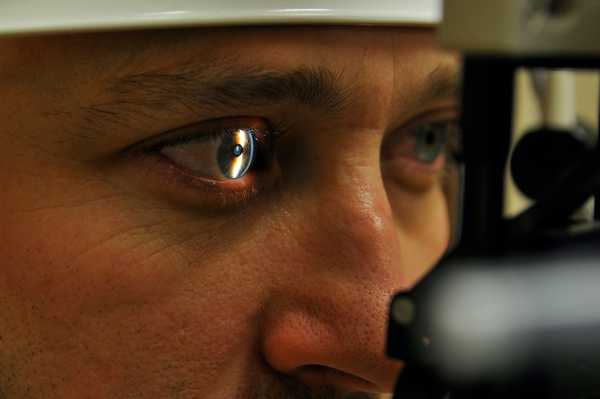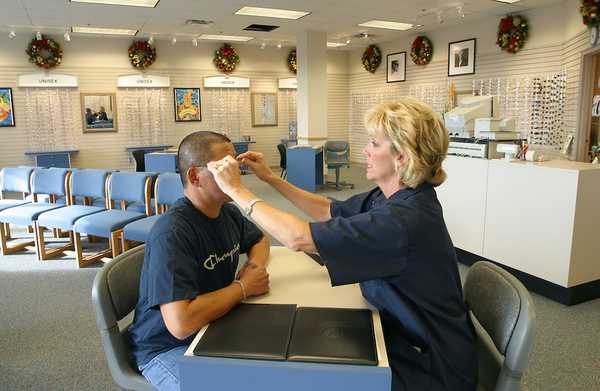Ophthalmologist vs Optometrist vs Optician - The Differences
All eye doctors take care of eyes. But there are actually two different categories of eye doctors. So what exactly do all these eye care providers do and what role do they serve in eye care?
Ophthalmologists
For ophthalmologists, the simple answer comes down to surgery. Ophthalmologists are medical school graduates and are trained to perform wide ranges of ophthalmic surgery. This includes cataract surgery. This includes refractive procedures such as lasik and ICL. This also includes other more intensive procedures such as cornea transplants or retinal surgery. During ophthalmology training, every ophthalmologist is required to perform a minimum number of cases in all fields of ophthalmology (yes, there are lots of different fields in ophthalmology... cornea, glaucoma, retina, pediatrics are all different fields within ophthalmology). As an ophthalmologist learns how to perform a new procedure, they are able to incorporate this into their practice.
Given that ophthalmologists get to the eye care world via medical school, they also have a heavy focus on the treatment of medical diseases of the eye. Conditions such as glaucoma, retinal detachments and macular degeneration are just a few that ophthalmologists follow and treat for their patients. This is especially true when these conditions become advanced and approach the need for a surgical intervention.
Surgical treatments and the care of advanced eye disease define an ophthalmologist. And given that everyone get cataracts at some point (if they live long enough), there is no shortage of ophthalmologist need.
Optometrist

CAPTION; Image by U.S. Air Force photo/Staff Sgt. Christopher Boitz / Public domain 8-15
In addition to ophthalmologists, optometrists play key roles in the world of eye care. The two fields are actually pretty similar; there is a good amount of overlap. Optometrists see a lot of the same conditions that ophthalmologists see. There are a few differences though which make optometry unique.
Optometrists complete their specialized training in optometry school instead of having to go through medical school first. Optometry school covers the same eye disease education, but, it doesn’t cover surgical training. Optometrists still learn about proper management of surgical patients but ophthalmology is the profession which becomes trained in performing surgical treatments on eye disease. Instead of focusing on surgery, optometrists focus on the non-surgical treatment of eye disease. In this capacity, they are often on the front lines identifying and screening eye disease in the general population.
In addition to their care with eye disease, optometrists also become masters at dealing with refractive disorders of the eyes. Their focus on correcting eye prescriptions with glasses and contact lenses allows them to deal with both the easy prescriptions up to much more complex glasses and contact lens solutions. Optometrists are the go to expert when dealing with speciality contact lenses and glasses.
So whether you need a prescription to correct your vision error or whether you need eye care to monitor your diabetes or treat your dry eye, optometrists serve an essential role in keeping eyes healthy.
Optician

Adjusting eyeglasses; Image by U.S. Navy photo by Photographer's Mate 1st Class William R. Goodwin., Public domain, via Wikimedia Commons
When you go to get a pair of glasses, a few people are involved in the process. There are the optometrists and ophthalmologists that do the actual measurements for what you need. But you can’t actually just slide this prescription in a machine and have a pair of glasses pop out. Not yet at least. To actually get the pair of glasses made, you need someone who specializes in the production of eyeglasses. You need an optician.
A lot goes into getting the right glasses in front of the eyes. Fitting glasses goes beyond just getting the prescription correct. The glasses must fit the patients lifestyle. This means ensuring that the glasses work while on the job, working out or at home. The lenses of the glasses must be centered properly over the patients eyes. Bifocals and progressive glasses need even more care to ensure that the glasses do their needed job of providing reading vision. In addition, aesthetically the glasses must meet the patient’s goals and desires. All of these criteria require an optician to navigate.
Opticians mostly sit behind the scenes in an optical shop. You don’t need to search out the optician, you simply need to search out a good optical shop. Behind a good optical shop is a good optician running the show and very frequently playing a large role in the day to day business. All to make sure that you are happy with your prescription and your vision.
Related Articles
Also check out EyeMountain.com for more great eye articles
Please note: The general information provided on the Website is for informational purposes only and is not professional medical advice, diagnosis, treatment, or care, nor is it intended to be a substitute therefore. See the Disclaimer and Terms of Use for more information
%2C_performs_eye_surgery_on_a_3-year-old_girl.jpg)